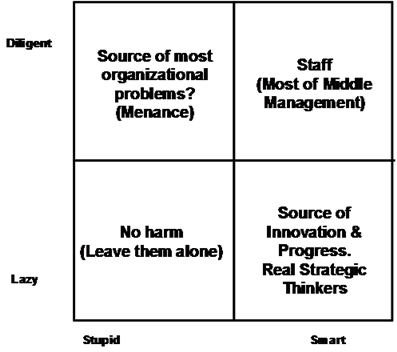[Cross posted at Future Tense]
Paul Graham’s latest essay is getting some play including within the David Allen, Getting Things Done, world where I came across it. Frankly, I didn’t find it one of Graham’s better efforts and you’d probably be better off sticking with Allen’s insights about life and work. I’d boil down Graham’s take as “stay focused on what’s really important and let the little stuff slide in order to do that.” I don’t have the luxury to hire a personal assistant to let me do that and I’m confident that my wife wouldn’t let me get away with it either. One of the reasons I keep sticking with Allen’s approach every time I fall off, is that Allen gets the reality of both the important stuff and the nitty-gritty reality of day-to-day errands that still have to get done.
On the other hand, Graham also points to another essay by computer scientist and Turing Award winner, Richard Hamming that has much more importance to any of us who want to accomplish something significant in the knowledge work that we do.
Hamming’s essay, You and Your Research, dates to 1986, but is still packed with insight about how to think about your work and problems worth tackling when you have significant discretion about what problems to work on. That’s the defining characteristic of knowledge workers and there’s precious little guidance to draw on. Just a few sample quotes to pique your interest:
What Bode was saying was this: “Knowledge and productivity are like compound interest.” Given two people of approximately the same ability and one person who works ten percent more than the other, the latter will more than twice outproduce the former. The more you know, the more you learn; the more you learn, the more you can do; the more you can do, the more the opportunity – it is very much like compound interest. I don’t want to give you a rate, but it is a very high rate.
…
Another trait, it took me a while to notice. I noticed the following facts about people who work with the door open or the door closed. I notice that if you have the door to your office closed, you get more work done today and tomorrow, and you are more productive than most. But 10 years later somehow you don’t know quite know what problems are worth working on; all the hard work you do is sort of tangential in importance. He who works with the door open gets all kinds of interruptions, but he also occasionally gets clues as to what the world is and what might be important. Now I cannot prove the cause and effect sequence because you might say, “The closed door is symbolic of a closed mind.” I don’t know. But I can say there is a pretty good correlation between those who work with the doors open and those who ultimately do important things, although people who work with doors closed often work harder. Somehow they seem to work on slightly the wrong thing – not much, but enough that they miss fame.
…
After quite a while of thinking I decided, “No, I should be in the mass production of a variable product. I should be concerned with all of next year’s problems, not just the one in front of my face.” By changing the question I still got the same kind of results or better, but I changed things and did important work. I attacked the major problem – How do I conquer machines and do all of next year’s problems when I don’t know what they are going to be?
….
…I suggest that by altering the problem, by looking at the thing differently, you can make a great deal of difference in your final productivity because you can either do it in such a fashion that people can indeed build on what you’ve done, or you can do it in such a fashion that the next person has to essentially duplicate again what you’ve done. It isn’t just a matter of the job, it’s the way you write the report, the way you write the paper, the whole attitude. It’s just as easy to do a broad, general job as one very special case. And it’s much more satisfying and rewarding!
As you can see, lots and lots of good ideas and advice. I’ll be chewing this one over for several days at least. Start with Hamming’s essay, go back to Graham’s later if you have the time. And for fun, do take a look at John Perry’s classic, Structured Procrastination as well.
Great essay on procrastination.Jack Holt e-mailed me a link to Paul Graham’s essay on procrastination. It’s great, couldn’t agree more. Thanks, Jack, and Paul.
Comments (1)
Comments on this Entry:
(Pascal Venier on Jan 1, 2006 10:29 AM)
An old classic … in praise of procrastination is Stanford Philosopher short essay from 1995 on “Structured procrastination”: http://www-csli.stanford.edu/~john/procrastination.html
[David Allen]
Technorati Tags : knowledge+work, Richard+Hamming, procrastination

